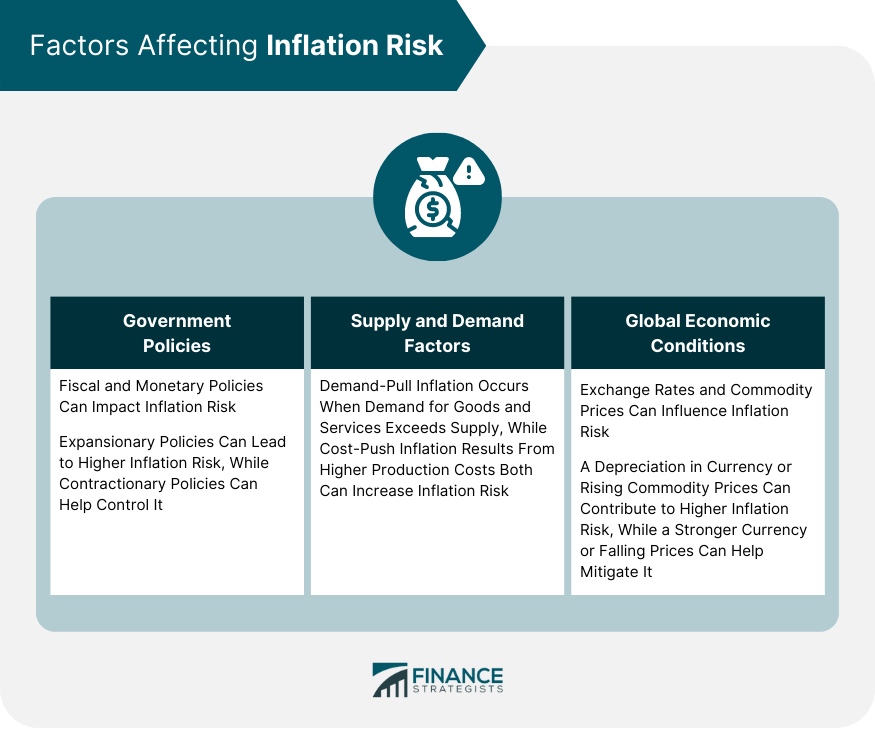Inflation Risks: Strategies for Economic Stability


Navigating Economic Stability Amid Inflation Risks
The economic landscape is often subject to various challenges, and one of the persistent threats is the risk of inflation. This article delves into the dynamics of economic inflation risks, shedding light on the factors contributing to inflation, its consequences, and strategies for maintaining stability in the face of these challenges.
Understanding Economic Inflation: Unraveling the Basics
Inflation, in economic terms, refers to the general increase in prices of goods and services over time. While moderate inflation is considered normal in a growing economy, excessive inflation can pose risks. Understanding the fundamental concepts of inflation is crucial for policymakers, businesses, and individuals to navigate the complex economic terrain.
Factors Driving Inflation: A Multifaceted Landscape
Various factors contribute to the dynamics of inflation, creating a multifaceted landscape. Demand-pull inflation, cost-push inflation, built-in inflation, and monetary policies are among the key drivers. Each factor plays a unique role in shaping the inflationary pressures, necessitating a comprehensive understanding for effective risk management.
Consequences of Inflation: Ripples Across the Economy
Inflation’s consequences extend far beyond the rising prices on consumer goods. Diminished purchasing power, eroded savings, and increased production costs for businesses are among the ripples felt across the economy. Policymakers and businesses alike must assess and respond to these consequences to maintain economic stability.
Hyperinflation Nightmare: Guarding Against Extreme Scenarios
While moderate inflation is a part of economic cycles, the nightmare scenario is hyperinflation. Hyperinflation involves an uncontrollable and rapid increase in prices, leading to a loss of confidence in the currency. Guarding against such extreme scenarios requires vigilant economic management and proactive measures to address underlying issues.
Global Interconnectedness: Inflation in a Connected World
In today’s globalized world, economic events in one part of the globe can have repercussions worldwide. Understanding the interconnectedness of economies is vital for assessing and managing inflation risks. Global cooperation and coordinated policies become essential tools in mitigating the spillover effects of inflation in a connected world.
Monetary Policy Balancing Act: Tools for Central Banks
Central banks play a pivotal role in managing inflation through monetary policy. Adjusting interest rates, controlling money supply, and employing open market operations are tools in their arsenal. Striking the right balance requires a nuanced understanding of economic indicators and a proactive approach to anticipate and address inflationary pressures.
Inflation Hedging Strategies: Safeguarding Wealth
Individuals and businesses alike employ inflation hedging strategies to safeguard their wealth. Diversifying investment portfolios, investing in inflation-protected securities, and holding tangible assets like real estate or commodities are among the strategies to hedge against the erosive effects of inflation on financial assets.
Fiscal Policy’s Role: Government Measures in Inflation Management
In addition to monetary policy, fiscal policy plays a crucial role in managing inflation risks. Governments can influence inflation through taxation, public spending, and debt management. The collaboration between fiscal and monetary policies is instrumental in creating a comprehensive strategy to tackle and prevent inflationary pressures.
Building Economic Resilience: A Collective Effort
Building economic resilience requires a collective effort from governments, businesses, and individuals. Transparency, sound financial management, and adaptability become key pillars in fortifying economies against the risks of inflation. The commitment to fostering economic resilience lays the foundation for a stable and thriving economic future.
Explore Strategies for Stability: Economic Inflation Risks
As the economic landscape continues to evolve, exploring and adopting strategies for stability in the face of inflation risks becomes imperative. Explore more about Economic Inflation Risks to gain insights into the latest developments, risk management strategies, and proactive measures to navigate the complexities of inflation in today’s dynamic economic environment. The journey towards economic stability begins with knowledge and a collective commitment to addressing the challenges posed by inflation risks.








